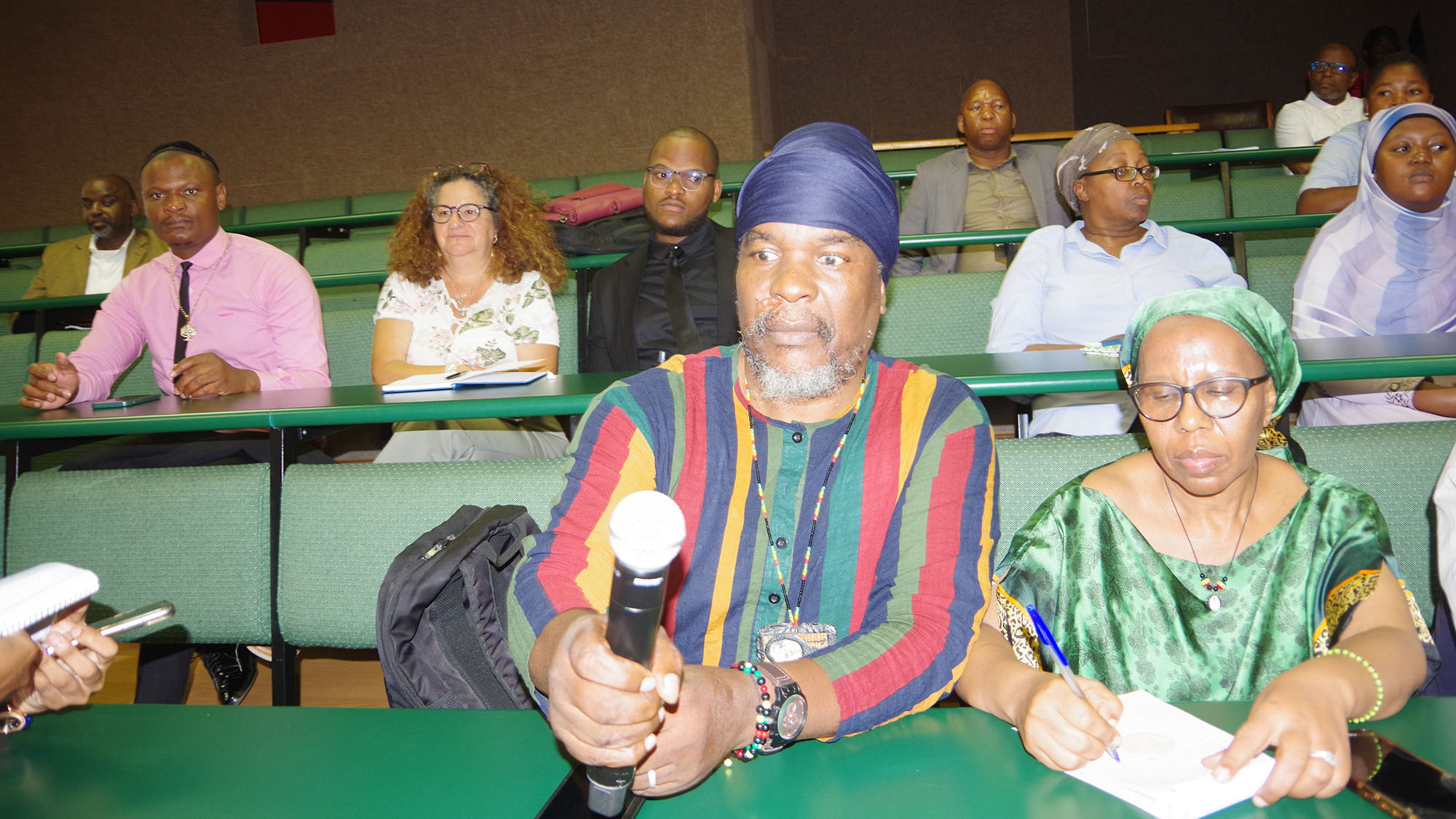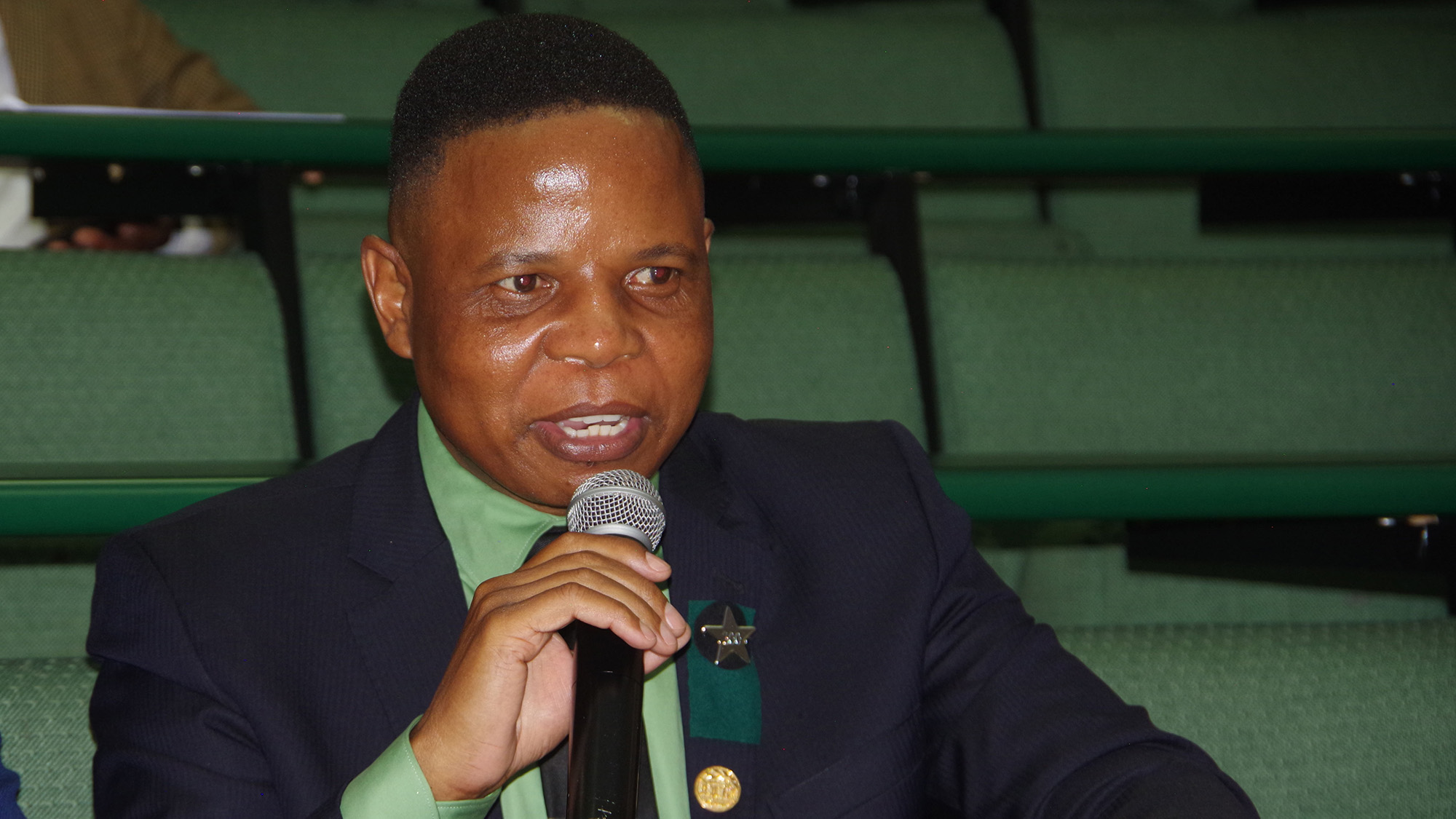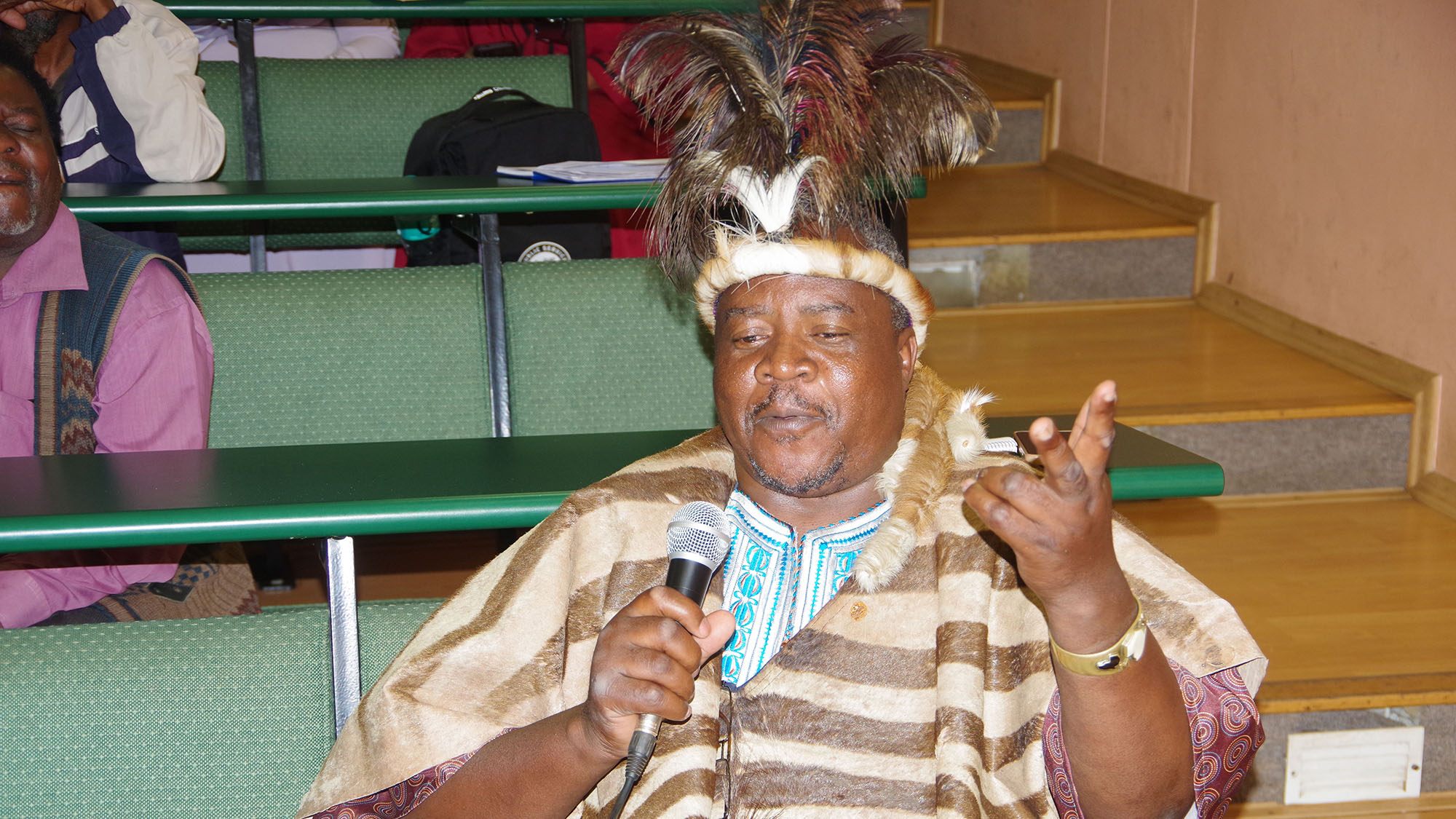.jpg)
MBABANE - The Muslim community has openly expressed to the Minister for Home Affairs that they feel unrecognised in the country.
This concern was raised during a stakeholder consultative meeting aimed at formulating a national policy for the regulation of all religions within the country.
Lungelo Sayed Matsebula stated that the community’s lack of recognition was so pronounced that they faced difficulties even securing an audience with the minister, despite numerous attempts.
“Let me report that we have made many efforts to meet you, but it has been impossible. We have many urgent issues as a community,” Matsebula told the minister. He explained that the Muslim community felt unrecognised because their marriages are not acknowledged in the country if conducted according to their religious practices, even though some members are born in emaSwati families. Matsebula warned that this situation risks members of the community being trafficked simply to have their marriages recognised in another jurisdiction. Furthermore, Matsebula informed the minister that many attempts had been made to invite government to participate in their annual activities, such as the Eid al-Fitr celebrations after Ramadan. However, he said the invitations had never been successful.
“Whenever we hold such celebrations, we expect government to present to us the needy so that we can share what we have as per our religions that promote love and caring, but there have been no lists of the needy provided by government,” he said.
Lwazi Dlamini echoed Matsebula’s concerns, highlighting that the Muslim community is not recognised in a manner that allows them to instil their faith in children. He explained that this lack of recognition has resulted in many children perceiving Christianity as the only religion in the country.
*…
‘... laying of hands could be crime’
MBABANE - Witchdoctors stunned many when they shared their belief that laying a hand on another person in the name of healing constitutes a criminal offence.
Mathokoza Tfwala cited the Witchcraft Act of 1953, which he claimed stipulates that any person who lays a hand on another in the name of healing is guilty of an offence. He also stated that the law prohibits individuals from being possessed by the Holy Spirit during gatherings, meaning even those in churches risk being charged.
“The law also prohibits the casting of bones and fortune-telling,” he explained. “The most concerning part is that we are all affected by this law, because any person who prays for others, casts bones or engages in other practices associated with witchdoctors is considered guilty,” he said, to the shock of those present. Some attendees asked where Tfwala obtained this information.
He further told the meeting that the situation was difficult for witchdoctors, as they are not allowed to possess the products they use for healing.
These include animal fats, skins, bones and other items.
“Police are authorised to conduct door-to-door searches for these products. The tricky part is that they demand licences, yet there is nowhere in the country to obtain such licences,” he explained.
*…
Tell us what you want, we will comply - govt told
MBABANE - Representatives from some faith groups have called on government to develop clear regulations to enable them to comply accordingly.
These include representatives from the Bahá’í Faith and the Zion Christian Church (ZCC) Star.
During the stakeholder consultative meeting aimed at formulating a national policy to govern all religions in the country, Wendy Dlamini from the Bahá’í Faith stated that it would be prudent for government to establish clear regulations so that they could adhere to them.
Dlamini emphasised that it would be pointless to oppose government regulations once they are in place.
“The Bible is clear on such issues; it says: ‘Render unto Caesar what belongs to Caesar, and to God what belongs to God.’
Government must clarify what it expects from us so that we can comply. If government says we must pay tax, we must comply. The same should apply to regulations,” she said.
Pakane Matawu of the ZCC shared the same sentiment as Dlamini. Matawu said government should clearly outline its regulations so that they can adhere to them.
*…
Rastas fight cannabis stereotypes
MBABANE - Rastafarians say many people associate their faith with cannabis and other misconceptions.
Speaking at the stakeholder consultative meeting aimed at formulating a national policy to regulate all religions in the country, Ambrose Zwane emphasised that much work remains to educate the public about the true principles of the faith.
*…
We are different- Nazareth Baptist Church
MBABANE - Elders of the Nazareth Baptist Church have reaffirmed their distinctiveness.
During the stakeholder consultative meeting held yesterday, Umfundisi Mpendulo Mkhonta stated that the church is unique in that it is believed to have descended from Heaven, bringing with it a set of principles derived from the Old Testament in the Holy Bible. However, he said they also embrace the New Testament.
He emphasised that the church is clear about what is acceptable and what is not. Mkhonta appealed to the Ministry of Home Affairs not to interfere with their way of worship.
*…
Faith leaders support single regulator
MBABANE - Some representatives of local faith groups believe that a single church body could suffice to administer religious affairs in the country.
These representatives expressed this view during the consultative meeting held to formulate a national policy to oversee all religions operating within the country. Currently, Eswatini has only three recognised mother bodies, with many churches affiliated to them, while some churches choose not to affiliate at all. The mother bodies are the League of African Churches, Conference of Churches and the Eswatini Council of Churches.
Worth noting is that in her preamble, the minister for Home Affairs said faith groups outside of Christianity could establish another body to regulate themselves. Sayed Matsebula from the Muslim Community stated that one church body could be sufficient if government genuinely aims to foster unity, order and accountability among faith groups.
*…
‘We exist without being known’
MBABANE - The Zion Christian Church (ZCC) Star says it exists without being known or recognised in Eswatini.
Speaking on behalf of the church, Pakane Matau explained that, over the past five years, the church had knocked on numerous doors in an attempt to be registered and recognised in Eswatini, but had been unsuccessful.
“We want to comply with the country’s regulations. We do not want to exist in anonymity. We want to be recognised and acknowledged, and the only way to achieve this is to be officially registered in government records,” Matau said.
He stated that the church which was founded in 1912, operates globally but is not affiliated with any church body in any country. He said the only action they take is to register with the relevant authorities so that they are known and recognised as a church.
Matau noted that the church is registered with the Ministry of Home Affairs in countries such as Zambia, Zimbabwe and Botswana.
He added that they are registered as a charity with the community in the United Kingdom.
*Full article available in our publication
.jpg)



